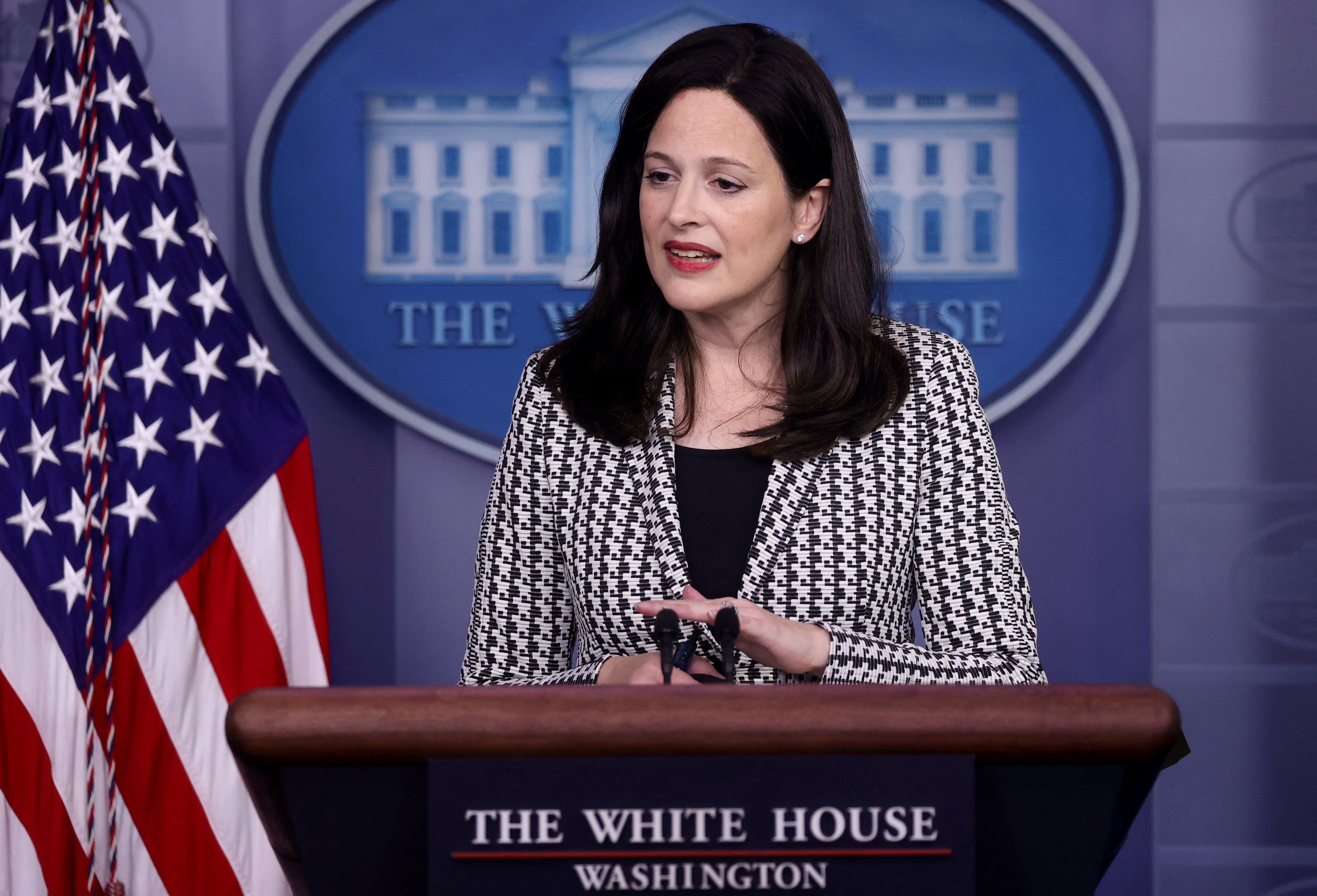
Anne Neuberger, White House deputy national security advisor for cybersecurity and emerging technologies, addresses cybersecurity during the daily press briefing at the White House in Washington, U.S., September 2, 2021. REUTERS/Jonathan Ernst /File photo Acquire license rights
SAN FRANCISCO, Oct 31 (Reuters) – Forty member countries of a U.S.-led alliance plan to pledge never to pay ransom to cybercriminals and work to eliminate the mechanism for financing hackers, a a senior White House official said Tuesday.
The International Counter Ransomware Initiative comes as the number of ransomware attacks increases around the world. The United States is by far the hardest hit, with 46% of such attacks, Anne Neuberger, the Biden administration’s deputy national security adviser for cybersecurity and emerging technologies, told reporters during a briefing. virtual press release.
“As long as money is flowing to ransomware criminals, this problem will continue to get worse,” she said.
In ransomware attacks, hackers encrypt an organization’s systems and demand a ransom payment in exchange for unlocking them. They often also steal sensitive data and use it to extort victims and leak it online if payments are not made.
While hundreds of companies fall victim each year, there have been high-profile US attacks over the past two months against casino operator MGM Resorts International. (MGM.N) and manufacturer of Clorox cleaning products (CLX.N). Both companies have yet to fully recover from the disruptions.
The alliance’s new initiatives aim to eliminate criminal funding through better sharing of information about ransom payment accounts, Neuberger said. Two information sharing platforms will be created, one by Lithuania and the other jointly by Israel and the United Arab Emirates.
Reuters reported details of this initiative on Monday.
Partner countries will share a “blacklist” through the U.S. Treasury Department that will include information on digital wallets used to transfer ransomware payments, Neuberger said.
She added that the effort would use artificial intelligence to analyze blockchain to identify illicit funds.
The volume of crypto payments to ransomware attackers is on track to reach its second largest annual total on record, according to blockchain analytics firm. Chainalysis said in July.
Zeba Siddiqui reports in San Francisco; Editing by Cynthia Osterman
Our standards: The Thomson Reuters Trust Principles.

